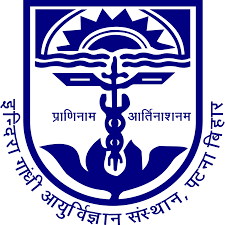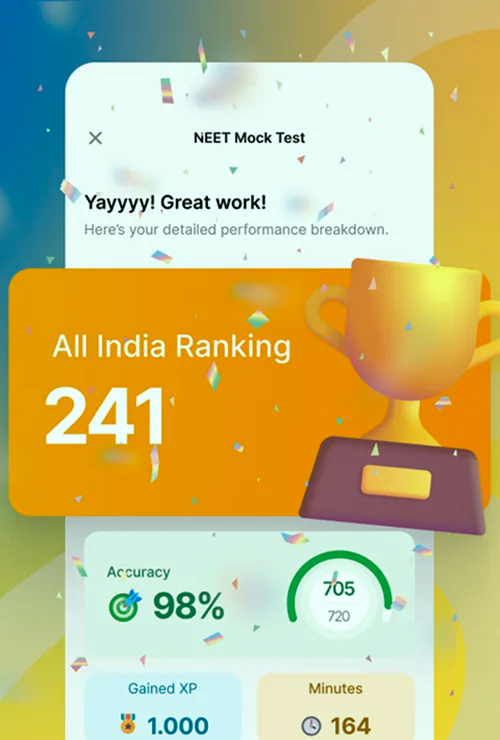General Information
Indira Gandhi Institute of Medical Sciences is a premier, autonomous government medical university located in Patna, Bihar. It was established in 1983 by the Government of Bihar through an Act of the State Legislature, designed on the pattern of the All India Institute of Medical Sciences (AIIMS), New Delhi.
While it is often referred to as a "Deemed University," its official status is an "Institute under State Legislature Act" or a Statutory University, granting it the autonomy to function independently, conduct its own examinations, and award its own degrees. It is the only super-specialty institute in Bihar and serves as a top-tier referral hospital for the state and neighboring regions.
Key Recognitions & Rankings
Type: Autonomous State Government University (Statutory)
Recognition: University Grants Commission (UGC) & National Medical Commission (NMC)
NAAC Grade: As an autonomous medical institute, it adheres to NMC standards. (NAAC accreditation is typically pursued by general universities).
NIRF Ranking (2024/2025):
Medical: Ranked #38 in India (2024).
Overall: Ranked in the 151-200 band (2023).
MCI Recogination
Recognized for 100 MBBS seats annually upto March, 2027. Permitted for increase of seats from 100 to 120 under EWS quota (103rd constitution amendment) from the academic session 2019-20. Annual renewal permission granted for 120 MBBS seats for AY 2024-25. LOP granted for increase Intake of 30 MBBS seats (120-150) for the A.Y. 2024-2025.
Campus Facilities
The Campus & Infrastructure
Location: Situated on Bailey Road in Patna, Bihar.
Campus Size & Vibe: The institute is set on a large, sprawling 131-acre urban campus. It is a highly professional and busy environment, dominated by the academic blocks and the massive, high-volume hospital.
Infrastructure & Facilities:
Academic Blocks: Modern, well-equipped lecture halls, advanced laboratories, and a central library with a vast collection of medical books and e-journals.
Residential Life: Separate hostel facilities are available for undergraduate (MBBS) students, interns, residents (PGs), and nursing students (both boys and girls).
Amenities: Includes a dedicated auditorium, guest house, bank, post office, and comprehensive sports facilities (badminton, basketball, cricket, football, etc.).
Hospital & Medical Facilities
Leading tertiary care hospital attached to the institution
Healthcare Hub: The IGIMS Hospital
Yes, IGIMS is built around its own large-scale, super-specialty teaching hospital.
Flagship Hospital: The IGIMS Hospital is the constituent teaching hospital and the primary clinical training ground for all students.
Scale & Services: This is a major tertiary and quaternary care referral hospital.
Capacity: A 1070-bed hospital, with ongoing construction to expand it to over 2500 beds.
Services: Offers a comprehensive range of services, including 24x7 Emergency & Trauma, advanced Critical Care units (ICUs), and numerous super-specialties like Cardiology, Neurosurgery, Nephrology (with a kidney transplant unit), and Gastroenterology.
Specialized Centers: It includes a 100-bed Regional Cancer Institute and a 200-bed Regional Institute of Ophthalmology (under construction).
Fee Structure
State University Affordability
Fee Structure
As a state government autonomous institute, IGIMS has a highly subsidized fee structure, especially when compared to private medical colleges.
City Details
Hostel & Mess
Campus Living: Hostel Facilities
Availability: Separate and mandatory hostel facilities are provided for all MBBS and Nursing students (both boys and girls).
Rooms: Accommodation is typically in 3-sharing rooms for UG students, which are furnished with beds, tables, and cupboards.
Dining: Each hostel has its own mess providing regular meals.
Cost: Hostel and mess fees are additional to the tuition fees but are highly affordable.
Hostel Fee (Annual): ~ ₹12,000 (as per student reviews).
Mess Charges (Monthly): Paid separately, often around ~₹3,000 - ₹4,000 per month.
Miscellaneous
Admissions & Career Pathways
Admission Process
Admission to all major clinical courses is strictly through national-level entrance tests and state counselling.
MBBS / MD / MS / DM / M.Ch: Admission is strictly based on rank in NEET-UG, NEET-PG, or NEET-SS examinations.
State Counselling is Key (Bihar): Seat allotment for 85% of State Quota seats is handled through the Bihar State Centralized Counselling Process (UGMAC / PGMAC), conducted by the Bihar Combined Entrance Competitive Examination Board (BCECEB).
All India Quota (AIQ): The remaining 15% of seats are filled through the national MCC (Medical Counselling Committee) counselling.
B.Sc Nursing / Paramedical: Admission is based on a separate entrance examination conducted by the BCECEB.
Placements & Career Outcomes
Career Path: As a premier medical institute, the career path is well-defined.
Internship: MBBS graduates complete a mandatory 1-year rotatory internship at the IGIMS Hospital. The stipend at IGIMS is one of the highest in the state (reportedly ~₹30,000 per month).
Post-Graduation: Graduates are highly competitive for PG seats (via NEET-PG) or are immediately employable as Junior Residents/Medical Officers in government and private hospitals. The institute reports a very high placement/higher-studies progression rate.
Salary Potential: The median package for PG (3-year) medical students (MD/MS) upon graduation is reported to be ₹14.0 LPA (as per NIRF 2024 data).
Information for NRI / Foreign Nationals
NRI Quota: IGIMS, as a state government autonomous institute, typically does not have a specific "NRI Quota" for its MBBS seats in the way that private or deemed universities do.
Foreign Nationals: Admissions for foreign nationals are generally not applicable through the standard NEET counselling. Any admissions for foreign nationals would be handled through government-level (Ministry of External Affairs / Ministry of Health) nominations or specific exchange programs, not through direct application.
OCI Candidates: Overseas Citizens of India (OCI) cardholders are eligible to apply for admission under the All India Quota (AIQ) seats through the MCC counselling. They are treated on par with Indian citizens for this quota but are generally not eligible for state quota seats.
Collage Images Gallery
Facilities & Campus Life
Well-equipped Library
Experienced Faculty
Computer Lab
Sports Activities
Heritage Campus
Frequently Asked Questions
Why Consult With Us?
- 15+ years of experience in medical education counseling
- 5000+ students successfully guided
- 50+ partner universities worldwide
- Free initial consultation with no obligation














